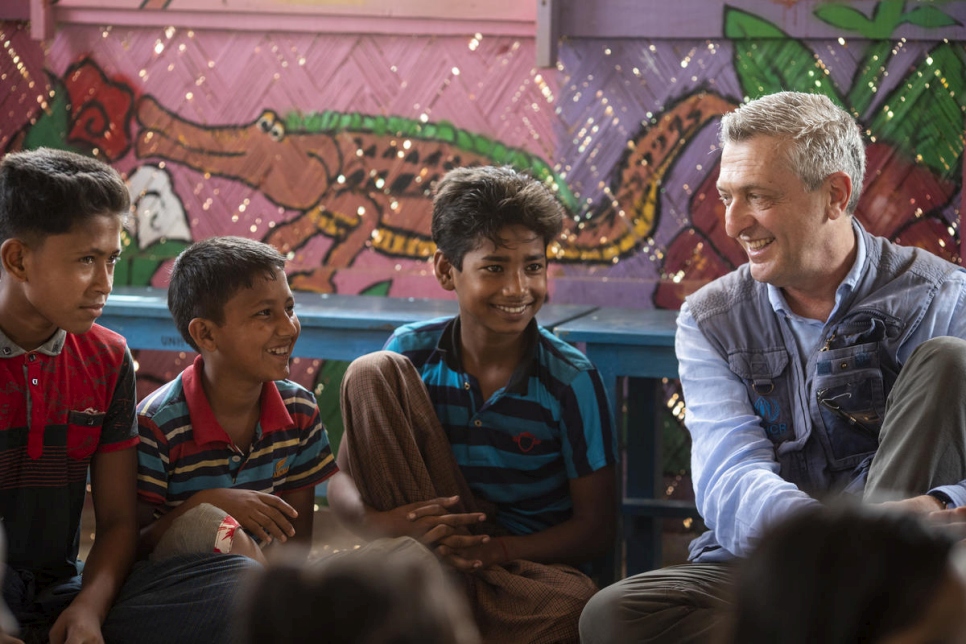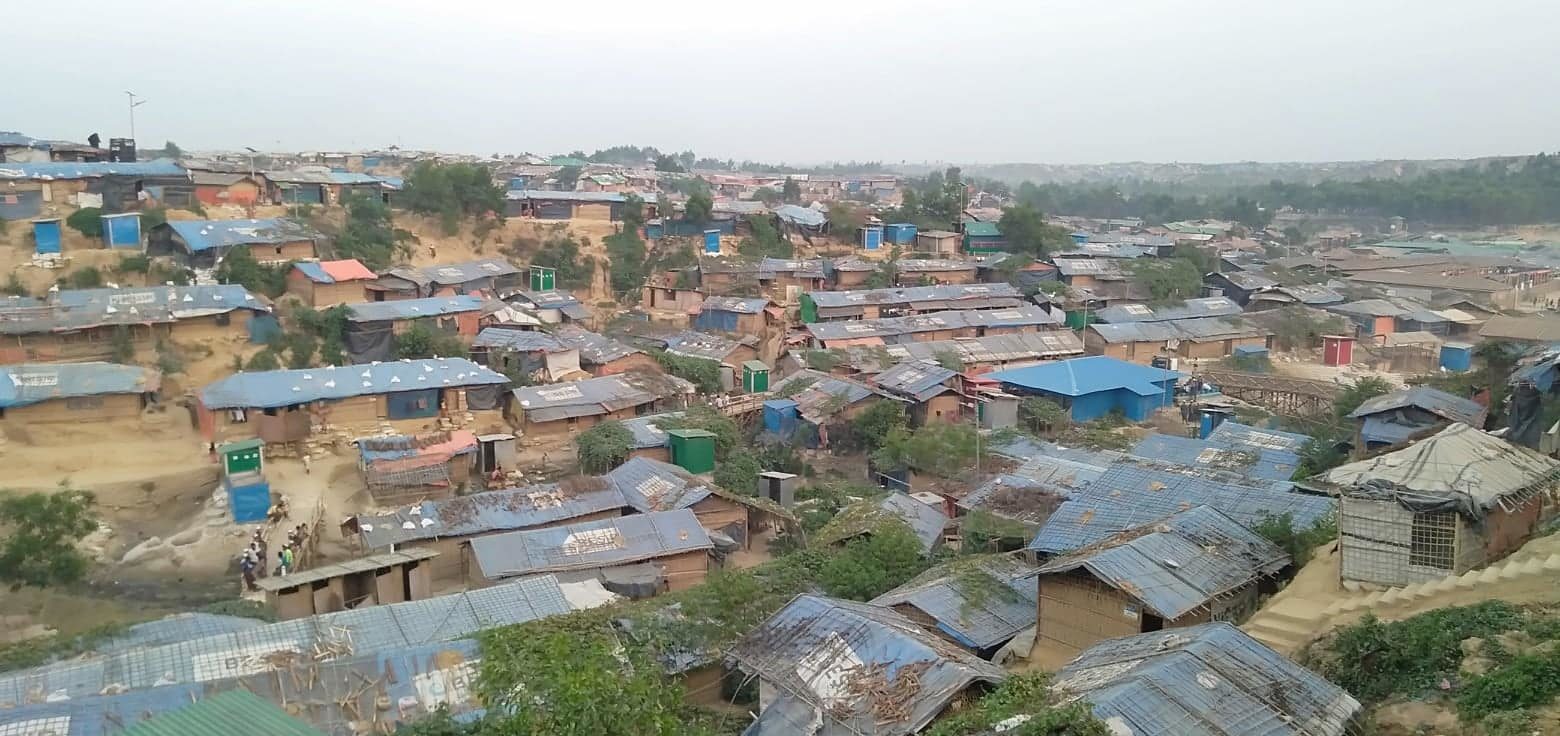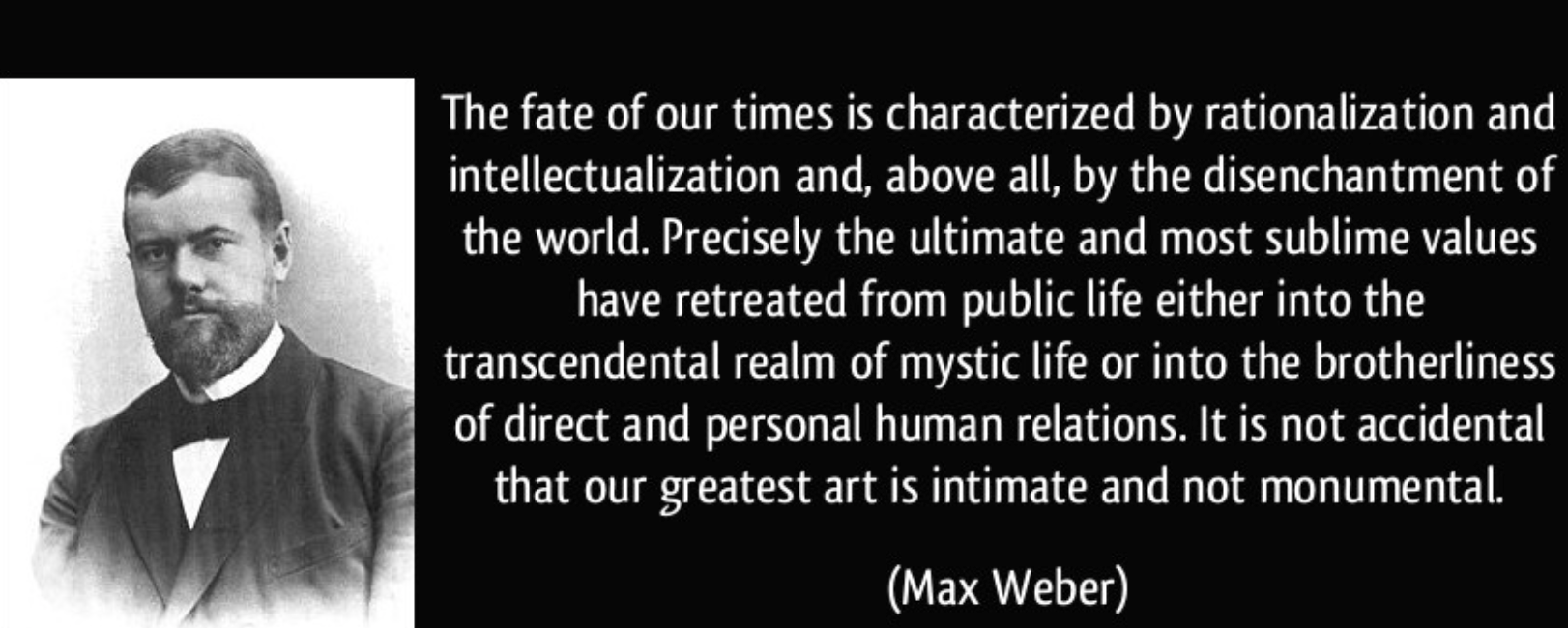“Was I born to live as refugee forever?”
-Ro BM Hairu
Refugee/humanitarian worker mental heath issues
Working in the context of a major humanitarian response is tough physically, mentally, and, perhaps most of all, emotionally. This is especially so in a response generated by armed conflict that involves systematic rape, torture, forced displacement, and mass execution. Such is the case in Bangladesh where refugees from Myanmar -many Rohingya Muslims- carry deep physical and emotional scars.

Efforts to deal with these issues are ongoing, and this upbeat report by UNHCR shows that human agency comes in many forms, in this case with the very young taking initiative to address serious and commonly experienced mental health issues.
Emotional release through writing
In my last two posts I presented, with comment, poems written by two young male refugees working for the Danish Refugee Counsel (DRC) in Cox’s Bazar, Bangladesh (see here and here). These poems describe horrific events, difficult mental and physical journeys, and the frustration of now living in what some have described as ‘prison camps‘.
Those interested in Rohingya voices should go to the Art Garden Rohingya Facebook page and then here to listen to a reading poetry of Mayyu Ali’s poems.
The poem below, written by refugee/humanitarian Ro BM Hairu just in the last week, strikes at the heart of the mental health issues.
Life in depression
–by Ro BM Hairu
______
Maker has blessed me with a life
I was known as a human being
I wasn’t born as talented or a genius
I wanted to make my future bright,
But I didn’t know what my destiny was
Was I born to live in bad luck forever?
I belonged to a nation
I wasn’t born being citizen
I wanted to get birthright,
But I didn’t trust my unmerciful government
Was I born to live as a non-citizen forever?

Mother begot me by blessing of the Maker
I wasn’t born into being scholar
I wanted to be educated and graduated,
But I endured racial discrimination
Was I born to live as illiterate forever?
Pitiless government has made me a refugee
I wasn’t born as being refugee
I wanted to go back to my native land
But I was living in a fake world,
Was I born to live as refugee forever?
These all happening on me,
For being Muslim and Rohingya
If I were a human like you, for me
Where was humanity?
Where was neutrality?
Where was impartiality?
Where was universality?
Where was peace and independence?
Living with depression
Life can beat you down even in the best of circumstances, and depression can touch anyone. (Side note: I suffer from depression, managed fairly well, but with deep low points on occasion.) Why the poem above is titled “Life in Depression” is apparent by the author’s long list of the exquisitely frustrating life circumstances. I asked Ro where imagined the entire camp community to be in 5 years and if there is any hope of returning home. He responded,
“There were many refugees in camp before we came here as they became refugee [as long ago as] 1978.
Some don’t have any hope and ambition that they can go back their native land, that’s why they have been surviving peacefully or painfully their lives long time here. And also when they came here some were children, younger, now they are older. From them, children become fathers, younger become grandfathers and some die here.T hey forget everything of their native land. If Bangladesh tells them that you all have to go to your native land by saying that Myanmar will receive you all then they will go surely.”
Life chances
The sociologist Max Weber coined the term “life chances” many years ago, and he was not the first -nor certainly the last- sociologist to point out the limits to human agency. We are blessed (cursed?) with the illusion of free will and are taught to assume that our lives are fully in our hands, that agency exists. Contrariwise, Weber argued our path through life is influenced greatly by our position within the economic system. In his mind, the rich have greater access to better education, employment, and living conditions and access to health care and hence their opportunities for a long, and comfortable life are higher than those lower down on the socioeconomic scale.
living conditions and access to health care and hence their opportunities for a long, and comfortable life are higher than those lower down on the socioeconomic scale.
More modern blushes on Weber’s idea expand on his vision of economic determinism to include a wider and more suffocating array of sociocultural influences including (but not limited to) views on gender, race/ethnicity, religion, and sexualities.
Ro is a Rohingya Muslim, born stateless in Myanmar and now housed in an ‘open air prison’. His life chances have determined, as least in broad strokes, his life path. Moment by moment he has agency, but in the bigger picture his life is determined not by his actions but rather by the unfortunate and unfair sociopolitical and historical circumstances into which he was thrust. These circumstances are by any measure depressing. Who among us would chose to be dealt the same lot as he?
He responds to his depression by working and trying to make the best of a bad situation. He also responds by giving voice to his frustrations through poetry, just like other Rohingya refugees and others in similar circumstances around the world, in Palestine, for example. Perhaps Weber is right that “our greatest art is intimate…”
From here to….where?
Those of us who become aware of the Rohingya struggle and the countless -and mostly nameless- others in similar circumstances, must as least hear these voices and, perhaps, be moved to act not on their behalf but rather to work side by side in colleagueship toward a world that offers pathways to dignity for all, one where life chances are more fairly distributed.
Please let me know if you have any comments or feedback. It is best to email me at arcaro@elon.edu.


 Follow
Follow